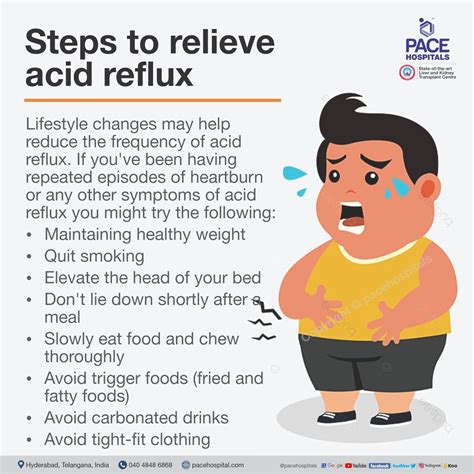Intro
Manage acid reflux during pregnancy with 7 expert tips, alleviating heartburn and discomfort with natural remedies, dietary changes, and lifestyle adjustments for a healthier gestation period.
During pregnancy, women often experience a range of physical discomforts due to hormonal changes and the growing fetus. One common issue many pregnant women face is acid reflux, also known as heartburn. This condition occurs when stomach acid flows back up into the esophagus, causing a burning sensation in the chest and throat. Managing acid reflux during pregnancy is crucial for the comfort and health of both the mother and the baby. Here, we will delve into the importance of addressing acid reflux, its causes, symptoms, and most importantly, provide tips on how to alleviate it.
Pregnancy is a time of significant bodily changes, and the digestive system is no exception. The hormone progesterone, which increases during pregnancy, can cause the muscles in the digestive tract to relax, including the lower esophageal sphincter (LES). The LES is a ring-like muscle that separates the esophagus and stomach. When it relaxes, it can allow stomach acid to flow back into the esophagus, leading to the symptoms of acid reflux. Additionally, as the fetus grows, it can put pressure on the stomach, further contributing to the likelihood of acid reflux.
Understanding and managing acid reflux during pregnancy is essential because, while it is generally not harmful to the baby, it can significantly impact the mother's quality of life. Persistent discomfort can lead to difficulties in eating, sleeping, and overall well-being, which in turn can affect the pregnancy experience. Moreover, severe cases of acid reflux can lead to complications such as esophagitis, an inflammation of the esophagus, which requires medical attention. Thus, finding effective ways to manage and prevent acid reflux is crucial for pregnant women.
Introduction to Acid Reflux Management

Managing acid reflux during pregnancy involves a combination of lifestyle changes, dietary adjustments, and in some cases, medication. It's essential to work closely with a healthcare provider to find the best approach, as some treatments may not be suitable for pregnant women. The goal is to minimize symptoms, prevent complications, and ensure the health and comfort of both the mother and the baby.
Causes and Symptoms of Acid Reflux

Understanding the causes and recognizing the symptoms of acid reflux are the first steps in managing the condition. The symptoms can vary from person to person but commonly include a burning sensation in the chest and throat, regurgitation of food, difficulty swallowing, and coughing or wheezing. Knowing what triggers these symptoms can help pregnant women take preventive measures.
Common Triggers
Some common triggers of acid reflux include: - Eating large or heavy meals - Lying down after eating - Consuming certain foods such as citrus fruits, tomatoes, chocolate, and spicy or fatty foods - Drinking alcohol or caffeinated beverages - SmokingTips for Alleviating Acid Reflux

Here are seven tips to help alleviate acid reflux during pregnancy:
- Eat smaller, more frequent meals: Reducing the size of meals can lessen the pressure on the stomach and lower esophageal sphincter, reducing the likelihood of acid reflux.
- Avoid trigger foods: Identifying and avoiding foods that trigger acid reflux can significantly reduce symptoms.
- Stay upright after eating: Avoid lying down for at least two to three hours after eating to prevent stomach acid from flowing back into the esophagus.
- Raise the head of your bed: Elevating the head of the bed by about 6 inches can help prevent acid from flowing up into the esophagus while sleeping.
- Avoid tight clothing: Wearing tight clothing can put additional pressure on the stomach, exacerbating acid reflux.
- Stay hydrated: Drinking plenty of water can help with digestion and prevent constipation, which can also trigger acid reflux.
- Consider over-the-counter medications: Under the guidance of a healthcare provider, some over-the-counter antacids or acid reducers may be safe for use during pregnancy.
Lifestyle Changes for Managing Acid Reflux

In addition to the tips mentioned above, making broader lifestyle changes can also help manage acid reflux. This includes maintaining a healthy weight, as excess weight can increase the pressure on the stomach, and engaging in regular, gentle physical activity to improve digestion and overall health.
Dietary Adjustments
Dietary adjustments play a crucial role in managing acid reflux. Some foods can help alleviate symptoms, while others can exacerbate them. Foods that are often recommended for pregnant women with acid reflux include: - Ginger, for its natural anti-inflammatory properties - Alkaline foods like melons and bananas - Lean proteins and whole grains - Non-citrus fruits and vegetablesMedical Treatment Options

For some pregnant women, lifestyle and dietary changes may not be enough to manage acid reflux symptoms. In such cases, medical treatment may be necessary. However, it's crucial to consult with a healthcare provider before taking any medication, as some may not be safe for use during pregnancy.
Safe Medications
Under the guidance of a healthcare provider, some antacids and acid reducers may be prescribed. It's essential to follow the recommended dosage and report any side effects promptly.Conclusion and Next Steps

Managing acid reflux during pregnancy requires patience, understanding, and often a combination of lifestyle changes and medical treatments. By working closely with a healthcare provider and making informed decisions about diet, lifestyle, and potential medication, pregnant women can effectively manage their acid reflux symptoms and ensure a healthier, more comfortable pregnancy.
We invite you to share your experiences and tips for managing acid reflux during pregnancy in the comments below. Your insights can help others who may be facing similar challenges. Additionally, if you found this article helpful, please consider sharing it with others who might benefit from this information.
What are the common symptoms of acid reflux during pregnancy?
+The common symptoms include a burning sensation in the chest and throat, regurgitation of food, difficulty swallowing, and coughing or wheezing.
How can I manage acid reflux during pregnancy without medication?
+Managing acid reflux without medication involves eating smaller, more frequent meals, avoiding trigger foods, staying upright after eating, raising the head of your bed, avoiding tight clothing, and staying hydrated.
Are there any safe medications for acid reflux during pregnancy?
+Yes, under the guidance of a healthcare provider, some antacids and acid reducers may be safe for use during pregnancy. However, it's crucial to follow the recommended dosage and report any side effects promptly.
